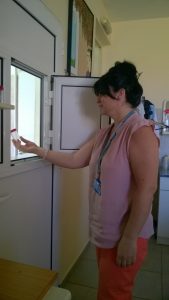DPNSEE Board member Denis Dedajić and Executive Director Milutin Milošević visited the Regional Cooperation Council (RCC), the successor of the Stability Pact for South Eastern Europe, who focuses on promotion and enhancement of regional cooperation in South East Europe. The main tasks of the RCC are to represent the region, assist the SEECP, monitor regional activities, exert leadership in regional cooperation, provide a regional perspective in donor assistance – notably the EU’s Instrument for Pre-accession Assistance (c) programme – and support increased involvement of civil society in regional activities. The RCC functions as a focal point for regional cooperation in SEE and its key role is to generate and coordinate developmental projects of a wider, regional character, to the benefit of each individual participant, and create an appropriate political climate susceptible to their implementation.
Justice and home affairs are one of the areas of cooperation in the framework of the RCC. Fighting serious and organised crime is one of the areas for which RCC Strategy and Work Programme 2014-2016 envisages assistance to the SEE governments in meeting the EU accession criteria through the regional cooperation.
DPNSEE representatives had a very interesting information sharing meeting with Mrs Ivana Goranić, the Expert on Governance for Growth working on justice issues on 18 August 2016. Several possibilities for cooperation related to the issue of drugs were identified, including exchange and partnership of police and justice structures. The RCC offers grants and DPNSEE will be interested to prepare a project proposal in 2017.







